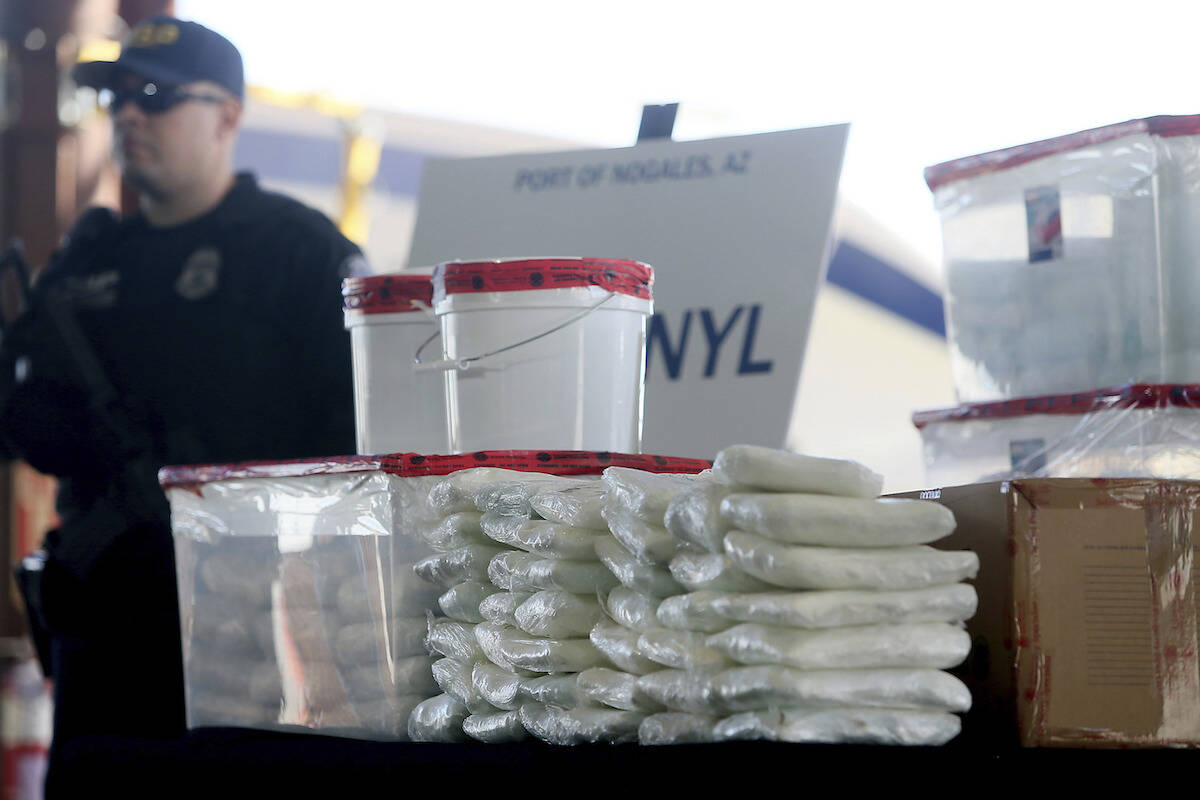COMMENTARY: U.S., Mexico must collaborate in fight against fentanyl
Fentanyl distribution and consumption are harming Mexico and the United States, tragically breaking families apart on both sides of the border. Since 2017, the number of deaths by fentanyl in the United States has been rising exponentially, becoming today the leading cause of deaths by overdose.
According to the Centers for Disease Control and Prevention, more than 70,000 people lost their lives to fentanyl in 2021. In Clark County alone, fentanyl-related fatalities represented 46 percent of all overdose deaths from 2018 to 2022, affecting mainly white male Nevadans between the ages of 20 and 34 years old, followed by Latinos and African Americans.
The government of Mexico has undertaken relevant actions to combat fentanyl trafficking. It has enhanced the list of controlled substances from four to 72, with the goal of preventing their misuse in the production of illicit narcotics, especially considering that chemical precursors come from Asia. During the first three months of 2023, Mexican authorities have seized 22 clandestine labs, 7,820 kilograms of methamphetamines and 45,200 liters of chemical precursors, among others. Our efforts to avoid illicit fentanyl trafficking in Mexico have sadly taken the lives of 75 Mexican soldiers in the past four years.
Mexico and the United States are working together in this issue under the Mexico-U.S. Bicentennial Framework for Security, Public Health and Safe Communities. It is an agreement that promotes bilateral cooperation through the seizure of drugs, weapons and clandestine laboratories. It also promotes reciprocity through information sharing and best practices. In light of this, Mexico will significantly increase its efforts in fentanyl and chemical precursor seizures and the United States will increase its efforts in weapon seizures and increase supervision of federal firearms licensees.
Another area of binational cooperation is on financial intelligence. This allows us to hit organized crime where it hurts them the most, their revenues.
In that regard, it is paramount to note that criminal enterprises that traffic fentanyl are not only a Mexican issue but also a shared one. The different expressions used to define criminal organizations as “cartels” (in Mexico) and “gangs” (in the United States) build a perception that the problem lies abroad. However, wholesale and retail drug distributors in the United States are mostly handled by American citizens who take care of illicit drugs from their reception at the border, to the sales at cities and suburban areas across the country. These organizations are, in fact, cartels. The bicentennial framework seeks to limit misleading statements on security collaboration, such as proposals to consider cartels as terrorist organizations and use foreign military force against them in Mexico.
The reality is that fentanyl and drug violence hurt us all. The Mexican government acknowledges this and is working firmly and strongly to reduce fentanyl trafficking to this country. The United States needs to contribute more to combat the illicit gun trafficking that arms the cartels and allows their criminal enterprises to operate. Our efforts cannot stand being asymmetrical. To win the fight against transnational criminal organizations and illicit drugs we need to remind each other that we are friends, not foes, and only through reciprocity, bilateral cooperation and a deeper understanding we will achieve this goal.
Julian Escutia-Rodriguez is consul of Mexico in Las Vegas.




























